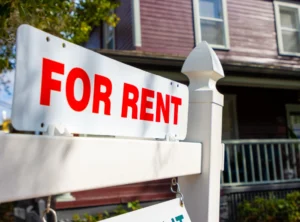What To Do if Your Tenant Has Withheld Rent in Escrow
 Are you a landlord dealing with a tenant withholding rent? They may have more legal grounds than you think. Renters can withhold rent in an escrow account in the event that the property owner is not complying with the lease. But what should a landlord do if their tenant withholds rent in escrow?
Are you a landlord dealing with a tenant withholding rent? They may have more legal grounds than you think. Renters can withhold rent in an escrow account in the event that the property owner is not complying with the lease. But what should a landlord do if their tenant withholds rent in escrow?
In this blog post, we’ll delve into the legalities and best practices for landlords regarding tenants withholding rent in escrow. We’ll discuss what constitutes a valid reason for holding back rent, how landlords should respond when faced with such situations, and more.
What is Rent Escrow?
Rent escrow is a legal process that allows tenants to withhold rent payments and place them into an escrow account until their landlord addresses certain issues with the rental property. This is most commonly used when landlords fail to make necessary repairs or address serious health or safety hazards in the unit.
Tenants may consider utilizing rent escrow when their landlord does not do necessary repairs, such as fixing a leaking roof, repairing malfunctioning appliances, or dealing with other health and safety issues. Renters may also use it if they have been overcharged for utilities or services not provided by the landlord.
How Does the Process Work?
The process does vary from state to state. Typically, the tenant must first document any problems with their rental unit before filing a complaint through the court system.
Once approved, all of the tenant’s monthly rent payments will be placed in an escrow account instead of being paid directly to their landlord until repairs are made and agreed upon by both parties. If all requirements are met, then the funds will be released from this account back to the tenant for them to pay their regular monthly rent going forward.
What to Do If Your Tenant Holds Rent in Escrow
Review State Laws & Lease Terms
If you’ve discovered that a tenant is holding rent in escrow, it’s in your best interest to make sure they’ve followed the proper procedures. You may be entitled to immediate compensation if they haven’t adhered to your state protocols.
With that in mind, reviewing state law is the first step any landlord should take is to check their state’s laws on the subject. In almost every state, tenants must provide written notice of lease violations. After that, landlords have between 14 days and a month to amend the issue. After that, they may submit their case to a judge for approval.
Evaluate the Damage in Question
Most states require proof that the repairs in question were not caused by the tenant. Cross-reference the issue with your initial rental inspection and determine if it was an existing problem or something that occurred after the tenant’s move-in date. If it was pre-existing, then you should resolve the issue as soon as possible to avoid further complications.
If you prove that the tenant caused the damage, they may not be eligible for withholding rent. You’ll still be responsible for repairing any issue hazardous issues, but you can deduct the cost from the security deposit or pursue another form of compensation.
You can avoid the issues that cause tenants to withhold rent by choosing carefully when buying an investment property. Always get a home inspection before making any financial commitment. If you’re renting out part of your home, be sure to closely follow all zoning laws and rental requirements in your area.
Review the Documentation
In most states, tenants are entitled to withhold rent payments and place them into an escrow account until their demands are met if a judge finds that there is landlord negligence resulting in serious health or safety hazards, such as leaks, pests, or mold growth. Compare the documentation to your records of when maintenance requests were received and what actions were taken at that time.
The tenant must also provide notice that they are withholding rent. Make sure they alerted you in writing of any issues with the rental unit and gave you a reasonable amount of time to make repairs before filing the complaint.
Negotiating Rent in Escrow as A Landlord
If the tenant has followed all of the necessary protocols, it’s in your best interest to come to an agreement. You’ll not only be able to avoid any legal ramifications, but you can also prevent any additional expenses or lost income.
If you’re unable to handle the repairs yourself, you may consider a “repair and deduct” strategy. This allows the tenant to pay for the repairs out-of-pocket and deduct their costs from their rent. Once all repair specifications have been met, the tenant will be released from escrow by a judge and can resume paying their regular rent as agreed upon in the lease agreement.
Navigate Rent in Escrow With Ease
Being a landlord is never an easy job, especially when it comes to dealing with tenants withholding rent. The conflict resolution process must be navigated with respect for both the tenant and the landlord. Ultimately, understanding rent escrow options can help landlords approach tenants without succumbing to costly legal battles.













 Accessibility
Accessibility